Recently, Silverlight Digital’s CEO, Lori Goldberg had the opportunity to moderate a panel at PharmaCX on HCP day. Industry experts, Ryan Dunkerley, Senior Manager, Omnichannel Marketing, of Chiesi USA, and Katie Swolfs, VP of Commercial Strategy, Analytics & Insights, of LEO Pharma, shed light on the impact of organic and paid media on the healthcare professional (HCP) customer experience (CX) and some insights into what’s worked for them.
Here’s our top 5 takeaways from their panel.
- Organic vs. Paid Media Impact
Overall, both organic and paid media can impact HCP CX, with the key being relevance, context, and mindful frequency to ensure a positive and meaningful experience for healthcare professionals. It can be a challenge if HCPs are being bombarded with ads so frequency and strategic targeting are crucial. Reaching HCPs in the right mindset, such as within medical environments or specific content areas, was deemed vital for effective engagement.
2. Success Story Reaching HCPs Through Digital Media
Examples were shared of successful CX for HCPs in digital media, particularly within Electronic Health Records (EHRs), improved HCP UX by providing relevant information at the right moment. Targeting HCPs with relevant ads at the precise moment they are prescribing has shown itself to be a huge opportunity for driving awareness and increased scripts.
3. Measurement and Data Analysis
The panelists delved into the importance of marketing mix modeling (MMM) in measuring success, highlighting its role in understanding the impact of media initiatives on HCP user experience. They discussed utilizing reporting tools that provide clinical insights, such as NPI exposure and prescription behavior, which are essential components of MMM. By employing MMM techniques, they were able to gain deeper insights into the effectiveness of various marketing channels and tactics, enabling them to optimize their media strategies for enhanced CX. Additionally, MMM facilitated data-driven decision-making, allowing them to allocate resources more efficiently and effectively to maximize impact on HCPs. This approach ensured that their marketing efforts were not only reaching the target audience but also resonating with them in a meaningful way, ultimately leading to improved HCP engagement and satisfaction. In addition, they can leverage such data to inform their sales and field teams.
4. Adaptability in Media Strategy
In 2023, Client X allocated most of their budget to consumer advertising, achieving a satisfactory grant rate. However, recognizing the need for HCPs to be educated prior to the consumer asking about this treatment, they shifted their strategy in 2024 to prioritize spending on healthcare professionals (HCPs). This adjustment aimed to enhance awareness and deepen understanding of the benefits of Client X’s drug among HCPs. Challenges arose due to the smaller HCP audience compared to consumers. To address this, Client X needed to spend their budget wisely, ensuring optimal frequency and maintaining a balance for a great user experience.
5. Emerging Trends and Platforms
The panel discussed emerging trends and platforms that show promise for enhancing the healthcare professional (HCP) user experience. They highlighted the potential of social platforms tailored for HCPs, enabling free-flowing exchange of ideas and collaboration among professionals. This could advance treatment knowledge and options for patients. However, they cautioned about the risk of advertising saturation on these platforms, leading to a “sea of sameness” where ads may not stand out. They emphasized the importance of strategic placement and creative approaches to overcome this challenge and make an impact in future pharmaceutical marketing strategies.
In summary, the panel emphasized the need for strategic targeting, data-driven insights, and adaptability in media strategies to enhance the HCP user experience.



